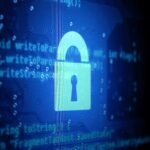
As ransomware reportedly held MedStar Health’s records system and data hostage, two UMBC cybersecurity experts offered insight on the situation and the possibilities for preventing future cyber attacks.
Anupam Joshi, director of UMBC’s Center for Cybersecurity and professor and chair of the department of computer science and electrical engineering (CSEE), spoke with CBS Baltimore (WJZ) about what MedStar Health or other organizations in similar situations can do to better understand and address the threats of ransomware.
He explained that ransomware takes over a computer system and holds it hostage until a demand is met, often a demand for bitcoins in exchange for returning access to the threatened data.
“Unbreakable. It’s simply unbreakable,” said Joshi, in describing how ransomware is highly challenging to crack.
Rick Forno, assistant director of the UMBC Center for Cybersecurity and director of UMBC’s graduate program in cybersecurity, spoke with The Daily Record about the MedStar Health system attack, specifically how ransomware attacks can be prevented.
Organizations like hospitals should back up their systems and data regularly, says Forno. However, he explains, malicious programs, like ransomware, can be hard to detect. This means that companies may not be able to guarantee that if encrypted backup files don’t contain viruses or malware.
See “Cyber Attackers Who Broke Into MedStar Want Big Payout” on CBS Baltimore, and “MedStar cyberattack highlights health care IT challenges” in The Daily Record.
Photo by Yuri Samoilov, CC by 2.0.





